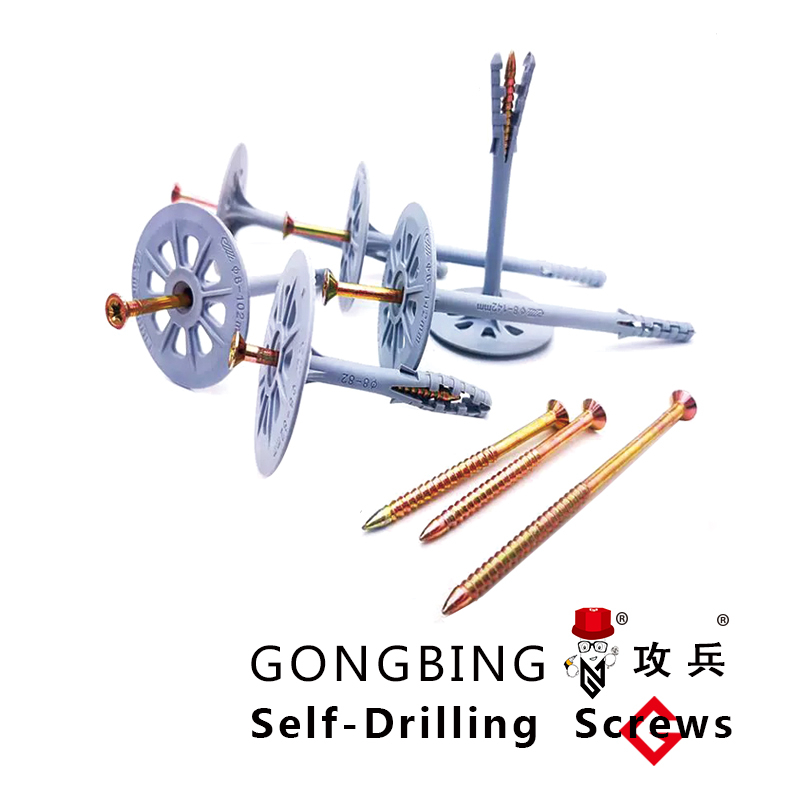Exploring the Benefits and Applications of Self-Drilling Fasteners in Construction and Manufacturing Industries
Understanding Self-Drilling Fasteners A Comprehensive Overview
Self-drilling fasteners, often referred to as self-drillers, are a specialized type of screw designed for efficient installation without the need for pre-drilling. These fasteners are typically characterized by their unique point designs that allow them to penetrate materials with ease. Commonly used in construction, automotive, and manufacturing industries, self-drilling fasteners offer a combination of speed, convenience, and reliability.
What are Self-Drilling Fasteners?
Self-drilling fasteners are engineered with a drill bit-like point that helps them create their own hole as they are driven into a substrate. The core feature of these fasteners is their ability to replace the traditional drilling and fastening process, minimizing the time and effort required for assembly. They are widely available in various sizes, shapes, and materials, making them versatile for different applications.
These fasteners are primarily made from carbon steel, stainless steel, or other alloys, enabling them to withstand different environmental conditions. The finish applied to these fasteners, such as zinc plating or coatings, improves their corrosion resistance and enhances their longevity, making them suitable for outdoor and high-moisture environments.
Applications of Self-Drilling Fasteners
One of the most significant advantages of self-drilling fasteners is their efficiency in a wide range of applications. They are frequently used in metal-to-metal fastening, which is prevalent in the construction of steel structures, roofing, and curtain walls. For instance, when installing metal roofing panels, self-drilling screws provide a robust solution that doesn’t compromise the integrity of the metal panels.
In the automotive industry, these fasteners are utilized in various assemblies where strength and durability are critical. They secure components such as brackets, body panels, and frame reinforcements. Additionally, self-drilling fasteners are common in the manufacturing of appliances and industrial equipment, where speed and efficiency in assembly are paramount.
self drilling fasteners

Benefits of Self-Drilling Fasteners
The primary benefit of self-drilling fasteners is their time-saving attribute. The elimination of the pre-drilling process can significantly reduce labor costs and increase productivity. This is particularly advantageous in large-scale projects where time efficiency is crucial.
Moreover, self-drilling fasteners provide a secure and consistent fastening solution. Their design ensures that they achieve optimal grip and holding power, reducing the risk of loosening over time. This reliability is essential in applications where safety is a concern, such as in structural frameworks and vehicular assemblies.
Another advantage is the versatility of self-drilling fasteners. They can be used with various materials, including steel, aluminum, and plastic. This adaptability makes them a preferred choice in industries with diverse fastening needs.
Considerations When Using Self-Drilling Fasteners
While self-drilling fasteners offer numerous benefits, it's essential to select the appropriate type for specific applications. Factors such as material thickness, type of substrate, and environmental conditions must be considered to ensure optimal performance. Furthermore, using the correct driving technique and torque is vital to prevent overdriving or underdriving, which can compromise the fastening quality.
In conclusion, self-drilling fasteners are an innovative solution that continues to reshape fastening practices across numerous industries. Their ability to provide quick, reliable, and durable connections makes them an indispensable tool for professionals and DIY enthusiasts alike. As technology advances, we can expect further enhancements in the design and application of these fasteners, ensuring they remain at the forefront of fastening solutions.
-
Weatherproof Plastic Expansion Anchors for OutdoorNewsJun.06,2025
-
Sustainability in the Supply Chain: Eco-Friendly TEK Screws ProductionNewsJun.06,2025
-
Load-Bearing Capacity of External Insulation FixingsNewsJun.06,2025
-
Double Head Bolts: Enhancing Efficiency in Industrial MachineryNewsJun.06,2025
-
Corrosion Resistance in Chipboard Screws: Coatings for Wholesale DurabilityNewsJun.06,2025
-
Butterfly Toggle Bolts : Enhancing Structural ResilienceNewsJun.06,2025
